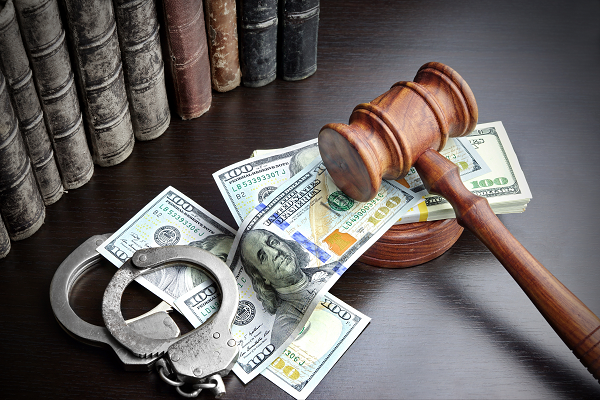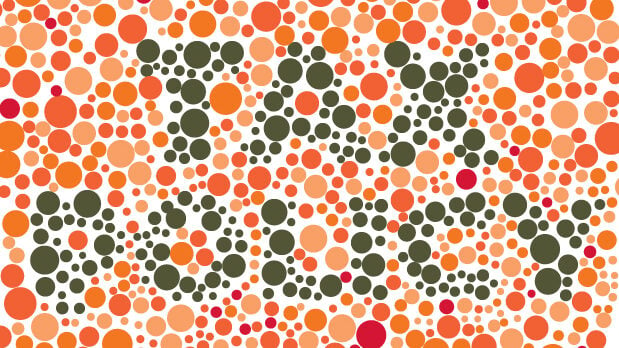When you’re poor, there is no margin of error in any part of life. A one-time splurge often requires sacrificing timely payment of some necessity. Those with financial resources can make youthful indiscretions disappear, but for a poor person, a misdemeanor can become a years-long, costly entanglement with the criminal justice system. Municipal fines for a parking ticket or traffic infraction that many of us eliminate with the swipe of a credit card can result in mounting penalties, a suspended driver’s license and worsened consumer credit for poor people—or even an arrest warrant for unpaid fines.
The deck is stacked against those who have the least, and ongoing racism makes it even more difficult for people of color to avoid punitive systems that are intentionally structured to extract what, for poor people, can be usurious penalties. The nation collectively shrugs about such injustices because they are either invisible or we chalk up entanglements in any legal morass to personal behavior. But the truth is complicated. Indirectly, we are all part of the fines-and-fees matrix that entraps poor people in debt or keeps them tethered to the criminal justice system. None of us should look away.
Currently, state governments are on a tax-cutting binge. A confluence of events, including a robust recovery, federal aid to states, and low revenue projections at the start of the pandemic, created unexpected budget surpluses. Now, many states are taking the politically expedient (though not economically prudent) route of proposing or enacting tax cuts.
Personal income tax cuts have straightforward consequences such as inadequate funding for education and other priorities that directly affect everyone. But they also have a less visible consequence: escalating pressure for state and local governments to secure revenue via other means, often on the backs of low-income people. Regressive sales and other consumption taxes are a way that states shift the costs for funding government to their lowest-income residents. Less discussed, but equally regressive and often more burdensome for poor people, are fines and fees. In Profit and Punishment: How America Criminalizes the Poor in the Name of Justice, Tony Messenger chronicles the often-ignored consequences of so-called fiscal conservatism and continual tax cuts.
“This is the cautionary tale to keep in mind when elected officials offer economic nirvana by cutting taxes,” Messenger wrote in his book’s prologue. “Somebody, somewhere, is always paying the price, whether it’s middle-class families stuck with higher college tuition bills, truckers navigating crumbling highways, or people stuck paying the bill of a criminal justice system that used to be funded by taxes.”
Profit and Punishment focuses on the criminal justice system and is based on a series of columns Messenger wrote on debtors’ prisons in Missouri. The book weaves the stories of three women who committed misdemeanors–or lacked the resources to secure legal defense for minor crimes they say they didn’t commit–into an analysis of how local jurisdictions have come to rely on fines and fees in lieu of state funding or local tax dollars to pay for public services.
Messenger begins with the story of Brooke Bergen who spent one year in a Missouri county jail for shoplifting an $8 tube of mascara. Her story demonstrates how some local governments strip people of their dignity and financially punish them long after they have served their time for misdemeanors. After serving one year in a dilapidated jail, Bergen received a $15,900 bill for room and board—a sum that is impossible for a poor person newly released from jail to pay, even after obtaining low-wage employment. [Read about pay-to-stay fees for jails and prisons]
Because Bergen couldn’t pay the fine for the time she served, a judge ordered her to show up in court once a month and pay at least $100 toward the expense. If she couldn’t make the monthly payment, she risked more jail time. If she couldn’t show up in court, she risked more jail time. Without explicitly stating that we collectively need more empathy, Messenger describes why such practices are overly punitive. If you have no car and don’t live near the court, there is a barrier. If you work an hourly job without paid time off, there is a barrier. And if you are barely scraping by to begin with, $100 a month to pay off a municipal fine is a daunting sum. The fines paid by Bergen and other offenders in rural Missouri funded sheriff pensions, courts and other municipal costs—services that in some locales are financed with tax dollars.
Messenger’s book shows the human cost of these policies and adds another layer to the strong body of research and literature on how fines and fees are a substitute tax that often criminalizes poor people.
Money to fund local governments must come from somewhere and too many localities are balancing their budgets with fines for misdemeanors, traffic infractions and other offenses, as well as high fees for court and other municipal services. These back-door taxes exist in no small part because state governments fail to raise enough revenue to support local communities.
In Why Local Jurisdictions’ Heavy Reliance on Fines and Fees Is a Tax Policy Issue, tax policy expert Meg Wiehe explains how state governments contribute to these challenges:
“Local governments’ hands are tied in some cases because taxing authority must be granted by the state. Most localities are barred from enacting income taxes, and many face strict limits on how much property tax revenue they can collect. Others lack the authority to expand their sales tax bases or raise their sales tax rates.”
Without sufficient taxing authority, local governments become more dependent on state funding. But when states fail to raise enough revenue, typically because anti-tax lawmakers stand in the way of doing so, the result is often cuts in spending on local government services. Wiehe continued:
“…many state lawmakers have focused on cutting business and income taxes, leaving fewer resources for investments in education, infrastructure, public safety—and local governments. Anti-tax state lawmakers have, thus, passed the taxing-revenue buck to localities and tied their hands on what sources of revenue they can tap. With these state restrictions in place, raising revenue via public safety fines or fees on city services is the most expedient way for some cash-strapped local governments to meet budgetary requirements.”
This creates a vicious cycle in which poor people are targeted and then saddled with fees that fund public services. The Department of Justice brought this issue to the national spotlight in 2015 with a report on how fines supported various levels of the Ferguson, Mo., government. The report found that every branch of Ferguson’s government participated in a system that targeted Black residents with citations and summonses because the city depended on the criminal justice system to raise revenue. Residents who couldn’t pay their fines risked warrants and jail time. The city government used the millions in revenue raised from these fines to fund city services—not improve public safety.
A 2019 study by Governing magazine found that small towns around the country rely on fines and fees to meet their expenses. They do so either because they lack sufficient state funding, or their revenue base has eroded over time due to economic decline. Governing’s analysis found that 600 jurisdictions depended on fines for at least 10 percent of their budget and 284 depended on them for at least 20 percent. These communities were concentrated in the South, though New York state was a notable outlier. Communities were more likely to be rural and poor or have limited local revenue bases and independent municipal courts. Census data show that states with the most fine-reliant jurisdictions incurred steeper state funding cuts than elsewhere over the last decade.
In Chicago, residents in ZIP codes that are home to a higher share of low-income or Black or brown people are 40 percent more likely to be issued vehicular fines, even though white communities have a higher density of cars and commuters, according to a 2018 article in the Chicago Reporter. A separate ProPublica investigation found the number of personal bankruptcies that included debt to the city of Chicago jumped 10-fold from 2007 to 2018, a period that coincided with former Mayor Rahm Emmanuel increasing fines for city sticker violations. Current Mayor Lori Lightfoot has a mixed record on this issue. She has implemented some reforms, including ending driver’s license suspensions for unpaid fines and creating more affordable payment programs. But she also has expanded the city’s red-light cameras, which annually generate tens of millions in fines and ticket Black and Hispanic households the most.
There are egregious examples from all over the country of poor people’s lives being upended by fines and fees. Nonetheless, fines, fees, and forfeitures collectively account for less than 1 percent of all state and local revenue on average, a January 2022 study by the Urban Institute found. Of course, there are outliers that depend on such revenue for a bigger percentage of their budget. But in the broader scheme of things, the unjust practice of raising revenue on the backs of low-income and communities of color via punitive fines and fees is surmountable. But first, we collectively must recognize it for the injustice that it is.
As a journalist, Messenger’s goal in writing about debtors’ prisons was to expose injustice and get state policymakers in Missouri to act. “I’m embarrassed by a conscious decision I made while writing my debtors’ prison series of columns in Missouri,” he wrote in chapter 10 of his book. “My early subjects from rural Missouri all share a characteristic. They’re white. … In Missouri, if I wanted to get the attention of the legislature, which is populated and run by a supermajority of white Republicans, then the characters of my column had to look like their voters.”
Perhaps initially focusing on the white victims of punitive fines was a strategic choice made from political necessity. But this is what the Black Lives Matter movement and other racial justice advocates are trying to change. The definition of injustice doesn’t vary based on the race of the person on the receiving end. And due to a long history of racism, Black people are more likely to experience systemic injustices, including being criminalized by punitive fines and fees. And yes, it is a structural, racial injustice when the genesis of punitive fines and fees is an unwillingness among state lawmakers to raise adequate revenues. Tax policy is not race neutral.
State policymakers can create better, more equitable tax systems and pass other laws that prevent local governments from levying punitive fines and fees. Justice partly requires all of us to recognize, as Messenger wrote, that there is no “economic nirvana” when it comes to tax cuts or states’ failure to raise adequate revenue because somebody, somewhere pays the price.
##
* The Fines and Fees Justice Center has a policy guide for how local jurisdictions can approach fines and fees reform: https://finesandfeesjusticecenter.org/2022/03/25/think-local-act-local-how-cities-and-counties-can-lead-fines-and-fees-reform/





